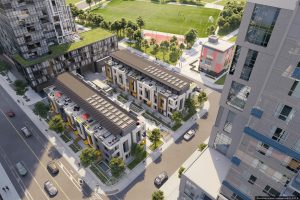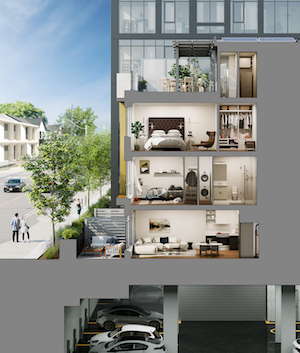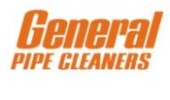
New fossil-fuel-free multi-residential development planned in Toronto
September 23, 2020 | By HPAC Magazine
The townhome community is placing a focus on energy efficiency and low carbon emissions with heat pumps, drain water heat recovery and ERVs.

The Daniels Corporation’s Field House EcoTowns in Regent Park. (CNW Group/The Daniels Corporation)
Canadian developer of low-rise and condominium housing communities, The Daniels Corp., have announced the the launch of its Field House EcoUrban Towns, in Toronto’s Regent Park neighbourhood. The townhome community is placing a focus on energy efficiency and low carbon emissions.
Now under construction, the Field House project features 24, three-storey townhomes, ranging in size from just over 1,319 sq. ft. to just over 1,700 sq. ft.
Once constructed and occupied, the townhomes are projected to use 52% less energy, emit 89% fewer greenhouse gases and reduce energy costs by 11% when compared to Daniels’ traditional townhouses.
According to Adam Molson, director of project implementation at Daniels, each unit will have ducted forced air heating and cooling via in-suite air handling units. And every unit has its own individual heat pump with dedicated compressor (which is located in the underground parking garage, rather than outside).
And for domestic hot water: “Each unit has an electric hot water tank with a conventional heating element (not heat pump). To increase the efficiency and hot water performance we have tied each hot water tank to a dedicated drain water heat recovery unit connected to the shower drains,” says Molson.

(source: The Daniels Corp.)
Featured elements in development include:
- Electric high-efficiency heat pumps – providing 300 to 360% efficiency compared to 95% efficiency of a typical gas boiler plant,
- PowerPipe drain water heat recovery – recovering energy from warm shower water to preheat water coming into the water heater and reducing energy consumption
- Reversomatic energy recovery ventilators – set to reduce energy consumption and utility costs through the recovery of energy from exhaust air. Also improving indoor air quality through a consistent flow of fresh air into the units
- High performance building envelopes – provide superior insulated walls to help reduce energy consumption and utility costs by preventing exterior air leaks
- Triple glazed windows – compared to double glazed options, the additional pane of glass makes it more difficult for energy to move through windows. Also results in improved thermal comfort and less noise from outside
- Low flow faucets and single flush low consumption toilets – help reduce water consumption, which can save thousands of gallons of water per year
- “Smart Meter” technology and efficient appliances – including a heat pump dryer which uses approximately half the energy of alternative options
- LED light fixtures – using 25 to 80% less energy than traditional lightbulbs
- Electric vehicle charging – all parking spaces feature SAE J1772 connectors to support electric vehicles




